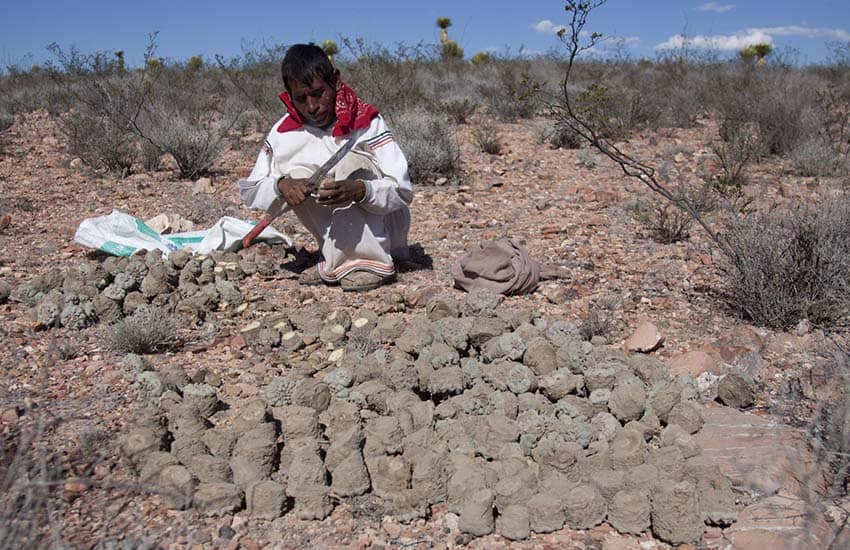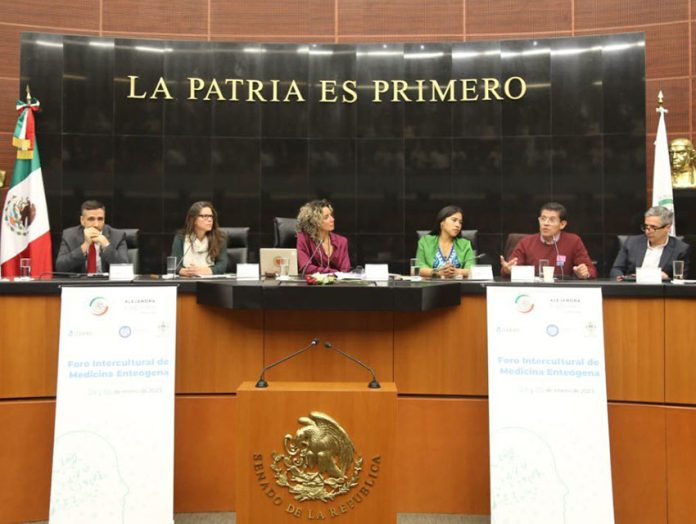A senator with the Ecological Green Party of Mexico (PVEM) has committed to presenting a bill to legalize and regulate natural hallucinogenic substances such as psilocybin for the treatment of mental health problems such as depression and anxiety.
Senator Alejandra Lagunes made the pledge at the Intercultural Forum on Entheogenic Medicine, which was held Wednesday in the federal Senate.
“It’s scientifically proven that psilocybin from psilocybin mushrooms, mescaline from peyote, DMT from ayahuasca and the Colorado River toad are not drugs. They have a high therapeutic potential, low toxicity and don’t create physical dependence or abuse,” she said.

Lagunes said that substances such as psilocybin have been shown to be effective in treating mental health problems such as depression, anxiety and post-traumatic stress disorder as well as addiction to tobacco and alcohol.
The PVEM senator told forum attendees — among whom were indigenous leaders, traditional healers and scientists — that in Mexico’s indigenous towns, there is “infinite wisdom and knowledge about psilocybin mushrooms and what they can do for people’s mental health.”
However, Mexico’s medical and scientific community are not carrying out research about the medical use of psilocybin, and lawmakers haven’t yet proposed its legalization and regulation, Lagunes bemoaned.
There has been a “prohibitionist policy” on natural hallucinogens since the 1960s, and the General Health Law considers such substances as “psychotropic with no therapeutic value” and a “problem for public health,” she added.
The senator said that several countries have decriminalized substances such as psilocybin to treat mental health disorders and it’s “urgent” for Mexico to do the same.
Oregon this month became the first state in the United States to allow adults to access “psilocybin services” for mental health treatment, while magic mushrooms are legalized or decriminalized in some other countries and territories.
Ayahuasca — a plant-based psychedelic in the form of a brewed drink — is legal in some countries, including Brazil and Peru, where it has been used for therapeutic and ritualistic purposes for centuries.
Hoy con mucha emoción inicia el Foro Intercultural de Medicina Enteógena, son temas que verdaderamente creemos que pueden cambiar la vida de aquellas personas que buscan alternativas para la #saludmental. Lo pueden seguir en mis redes y las redes del congreso. pic.twitter.com/r3Vkq5fXWC
— Alejandra Lagunes (@alelagunes) January 24, 2023
An indigenous shaman performs a traditional rite on Senator Lagunes.
Lagunes said that legalization and regulation of natural hallucinogens in Mexico would allow clarity with regard to who can cultivate and sell them and who can provide therapies with them.
“[We need to] find out how we can incorporate ancestral knowledge with … biomedicine, find out what are the public policies that respond best to the needs of the majority [of people] … and guarantee access to [substances such as psilocybin],” she said.
Medicinal marijuana is legal in Mexico, but the federal Congress has not yet complied with a Supreme Court directive to legalize the recreational use of the plant.
With reports from EFE
